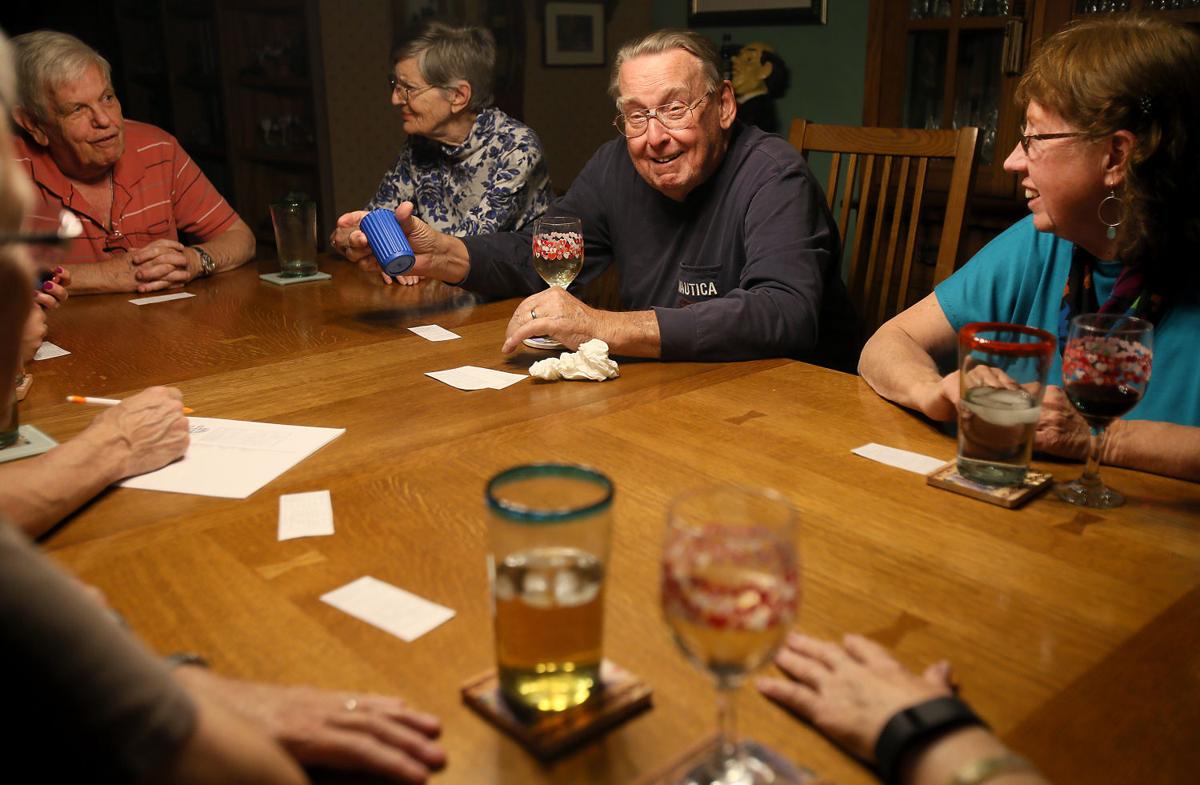Part three of 12.
My wife has always been a social animal. She enjoys being with other people, chatting, making small talk, telling jokes. Her Alzheimer’s deterioration has not interfered with the outward sociability, but the way she carries it out is astonishing, both in its content and its effectiveness.
I am unable even to speculate how Joan came up with some of her approaches to sociability. A common one is to walk up to perfect strangers and say, “I’m not going to hit you now.” This comment is so strange and unusual that it generally produces two effects. First, the stranger immediately catches on that this is not a “normal” person; then they laugh. The laughing is, of course, exactly what my wife hopes for, and that just encourages her. But so what? Isn’t that a good thing?
Generally the strangers go on about their business, but once there was a special reaction. She approached a young lady in the produce section of the market where we often shop and made the comment. The lady flinched, and since I was standing by, I said that my wife has Alzheimer’s and uncontrollably does this kind of thing.
At that the lady grasped Joan’s hands and remarked, “Oh, you have Alzheimer’s? May I pray with you?” There, among the cabbages, carrots and pears, she said a short prayer for my wife. Wasn’t that sweet?
In attempting to strike up a conversation, Joan uses the sequence “I’ll try to behave. Didn’t I behave once? You don’t remember?” It’s hard for anyone to avoid commenting on something like that.
In a very early visit to the psychiatrist, I had mentioned that she often used the word “behave.” He kept count during the half hour session. It turned out to be nearly 40 times.
I have tried to figure out why that particular word or idea is so important to Joan in her fading memory. It’s just speculation, but I refer to something I mentioned earlier in this series about the careful household in which she grew up. She and her older sister were the only children.
Their daily activities in the small town would consist of playing with neighbor kids, going to school, possibly parties, sometimes community or church events. I can just hear her mother saying to the girls, “Now you be sure to behave” as they left, and on their return, “Did you behave?” Well, Joan is still trying!
Small talk does not come easy to me, but for her it has always been natural. One of her opening gambits is “And what do you do?” She still says it, but cannot process the answer, so it’s likely she’ll ask the same person once more — several times in an evening. Again, she’s trying to engage in whatever small talk she can, and I see no reason to interfere.
Tomorrow: Household duties.





